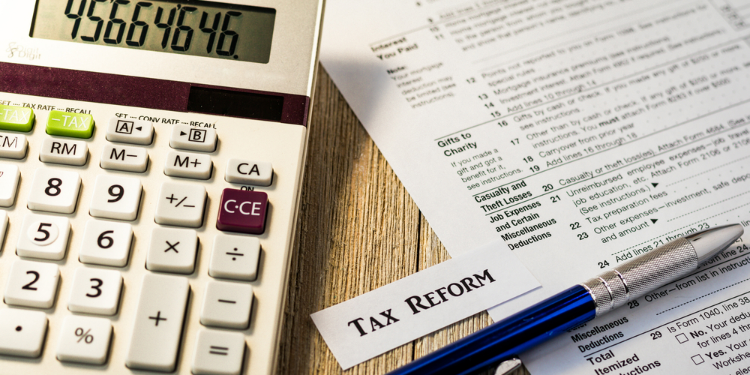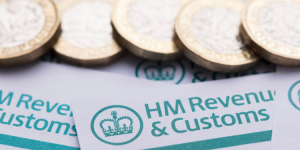
Expats in Mexico should expect a major change. Determined to fight against tax fraud, the Mexican government introduced a reform in its tax system. From July 1, all foreigners over the age of 18 living in Mexico will need to have a tax number, whether they are permanent residents or not, and whether they earn their income in Mexico or not.
Until then, the tax number was only required to start a business in the country. Other countries have also introduced similar measures targeting foreigners. How do these changes affect expat workers and digital nomads? What can be the impact on expat plans?
How does the Mexican tax reform affect expats?
The Mexican government is sending a strong signal to expats and anyone who wants to settle in the country. Along with the promotion of its temporary residence visa (the digital nomad visa, valid for one year and renewable for up to 3 years), the country is also looking to end money laundering and tax fraud. The RFC (Federal Register of Contributors) is a new turning point in the policy of President Andrés Manuel López Obrador. Since he came to power in 2018, President Obrador has made the fight against tax fraud his priority. It's worth noting that tax fraud accounts for a loss of 2.6% of the Mexican GDP. Besides, crypto-assets are on the rise, thus contributing to money laundering.
As such, legal expats in the country should have nothing to fear. However, this reform is likely to have an impact on their daily lives. Since the tax department (SAT) is overloaded, many foreigners are unable to get appointments, so there are risks that they might not obtain their RFC before July. Without an RFC, they can neither open a bank account, sell a property, buy a car, etc., -- which is quite stressful for foreign workers and digital nomads. Others are questioning collecting fingerprints and biometrics although the RFC application is free of charge. So one of the major issues is knowing where the personal data will be stored. Where the Mexican authorities emphasize security and transparency for better efficiency of the administration, which would be in the interest of taxpayers, some expatriates already see this new system as an obstacle to their freedom.
The Golden Visa reform
Expats have to pay close attention to tax reform, especially those who moved for tax benefits, such as those provided by the Golden Visa. Portugal, for example, introduced some changes on January 1, 2022. Created in 2012, the Portuguese golden visa grants non-European nationals a one-year residence and citizenship after 5 years of residence, provided they make a real estate investment. However, the government has imposed a limit on investments, considering rising tax fraud and money laundering over the past years. However, the Golden Visa program was canceled following the pandemic and the war in Ukraine. Pressurized by the European Commission, Malta canceled its Golden Visa program in 2020 while the United Kingdom put an end to its program in February 2022.
However, it looks like Golden Visas are no longer reserved for wealthy expats. The pandemic has revealed that more and more professionals are keen on working remotely. In the United States, the great resignation occurred when middle-class workers felt the need for a change of life and career. So it looks like it's not really the end for Golden Visas around the world. Despite the European Commission's warnings, some countries left the Golden Visa programs unchanged. For instance, Latvia grants residency against an investment of 50,000 euros. Greece required an investment of 250,000 euros and Spain 500,000 euros. Turkey also offers a Golden visa against a 380,000 euros investment. This democratization is an opportunity for middle-class families to move abroad for a better quality of life without any tax-related hassles.
The Japanese tax reform
The Mexican tax reform is quite similar to the one introduced by Japan in October 2015 (officially launched in January 2016). This reform, known as "My number", involves the creation of a unique identification number that is directly linked to the tax department and social security. "My number" is essential for any Japanese citizen and foreigner who resides in the country for more than three months and lasts for a lifetime. Clearly, everyone is concerned, except tourists and short-term visitors (business trips, missions, etc.). This means that all employees, and even digital nomads, require a "My number" that is automatically created upon registration at the town hall. Centralizing data makes administration more efficient, and all citizens can consult their data via a security account. However, there are regular checks and penalties for people who try to commit fraud.
Of course, there were a lot of reactions when "My number" was introduced, with some people comparing it to "big brother". Even the Japanese were skeptical in the beginning. Today, "My number" is required in most spheres of everyday life, including applications, opening a bank account, money transfers at the Post Office, applying for social benefits, signing insurance contracts, etc. However, this hasn't made Japan any less attractive to expats over the years. In fact, a 9.1% rise in long-term visas was recorded in 2017 (nearly 5.9 million visas granted), followed by an 18.5% rise in 2018 (nearly 7 million visas issued), and a 19% rise in 2019 (with about 8.2 million visas granted). Then Covid came and caused an 87% drop in visa issuance in 2020. All this had nothing to do with the tax reform.
How do tax reforms weigh in expats' balance?
While the Tax Identification Number is already common in most European countries, it's quite unlikely that a single TIN will be applied to the European Union as a whole. However, governments do share tax-related information among themselves, considering tax deductions at source. Besides, tax evasion has become a significant concern for most countries, and measures are being taken to adapt to societal changes. Today, most countries boast their secure and flexible tax systems (such as the withholding tax, which facilitates tax declaration). Indeed, many digital nomads and expats to-be will carefully analyze a country's tax system and benefits before considering a move. Still, many of them prioritize other factors such as the environment, healthcare, work-life balance, career opportunities, wages, ecology, political stability, etc.



















